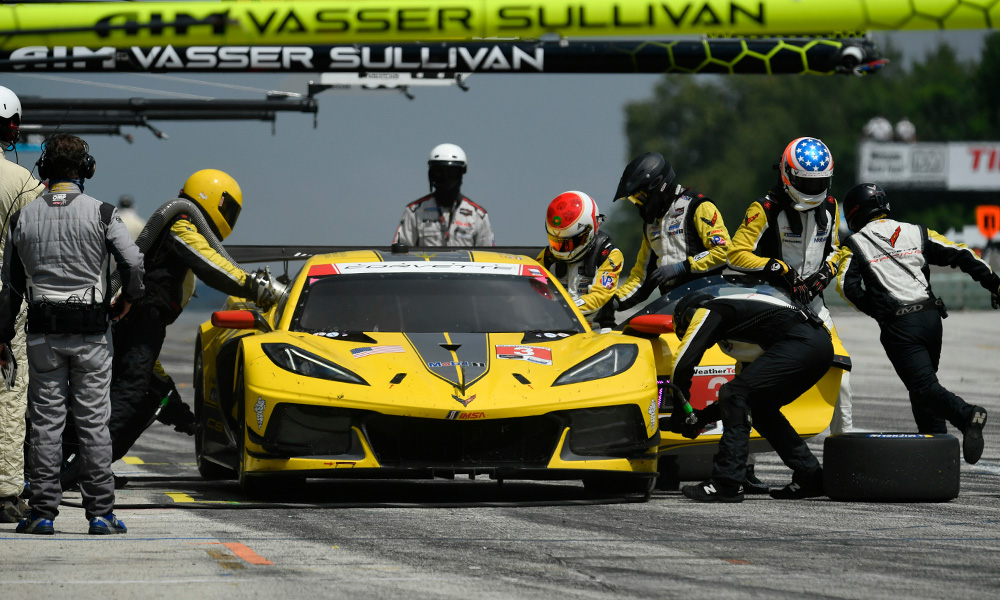
Photo: Rick Dole/IMSA
Converting the Chevrolet Corvette C8.R into GT3 specification would not be an overnight job according to Corvette Racing team manager Ben Johnson, who stressed the importance of the continuation of a “professional-level” GT racing program for the brand.
The GT Le Mans class in the IMSA WetherTech SportsCar Championship faces an unknown future, with Porsche’s factory program set to end at the conclusion of the 2020 season, theoretically leaving only Corvette Racing and potentially BMW in the class for 2021.
It has reignited talks of GT convergence, or the possibility of seeing the elimination of GTE-spec cars altogether should IMSA elect to embrace a pro category for GT3 machinery.
While roundtable discussions on a possible category shakeup have yet to take place, Johnson has reaffirmed Corvette’s commitment to racing at the pro level.
“The roadmap and plan is not formalized to that point yet,” he said. “There’s quite a few discussions that need to happen to understand what the future of GT racing looks like.
“Is it a continuation of GTE? Is there some level of convergence?
“Our priority is to make sure that we can continue to showcase Corvette at the highest level, be that in IMSA and in the WEC and Le Mans.
“That requires factory efforts that display the car and demonstrates its potential.
“That’s what Corvette has been built on, the track-to-road connection of the car and vice-versa. That’s the main priority, is to continue that level of connection between the production car and race car.”
When asked by Sportscar365 on the amount of changes needed to make the new-for-2020 mid-engined Corvette eligible as a GT3 car, Johnson said it’s not something as simple as “changing homologation stickers.”
“As far as changing it, it’s a relatively large task to make sure you’re changing the car, if we were to do that, to the GT3 rulebook,” he said.
“It’s not something simple that can be done in a relatively short amount of time.
“To change a car from GTE to GT3 is not as simple as changing homologation stickers, unfortunately. There’s quite a bit of work to make sure you’re meeting all of the technical regulations for the GT3 platform.
“The future of GT racing is obviously critical to Corvette. We’re committed to it and find a lot of value in professional-level GT racing [being] part of the Corvette product.
“We’ll continue to work with IMSA, the ACO and FIA to build the future of GT racing.”
Corvette Has ‘Reviewed’ New GT3 Regulations
Johnson confirmed that the team have been “reviewing” the FIA’s new GT3 regulations, which were scheduled to come online in 2022 although are understood to now likely be delayed until 2023.
BMW has already built a new car to the ruleset, with the M4 GT3 set to take part in several test races next year.
“There is the updated regulations set for GT3 in the future,” Johnson said. “That’s about as far as it’s gone at this point. We can build a long-term roadmap with all of the sanctioning bodies.”
Johnson admitted that convergence would have to “make sense” for Corvette and hinted against the idea of running two different specifications of cars, should IMSA and the WEC have different class structures.
“It all depends on what the differences are,” he said. “Right now there’s bodywork differences between sprint and Le Mans [for GTE].
“If something like that were to take place, it needs to be something that’s achievable and something that doesn’t completely change the car or else you would be in a situation where you’d have a GTE car and a GT3 car.”

























